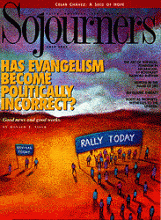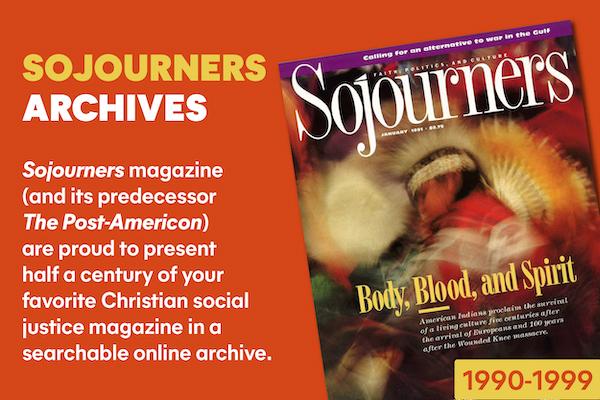At 3 a.m. on Good Friday of this year, three nonviolent activists silently entered the Newport News (Virginia) Shipyard by cutting through a chain-link fence. Their intent was literally to "beat their swords into plowshares" and to remind people of conscience that the fight for disarmament is far from over.
Once inside, Kathy Boylan of Wyandanch, New York, and Michele Naar-Obed and her husband Greg Boertje-Obed of Baltimore's Jonah House walked inconspicuously to the Tucson, one of the nuclear fast-attack submarines under construction at the site. They then scaled 80 feet of scaffolding and climbed aboard.
Almost immediately, they disarmed the submarine's Tomahawk cruise missiles by hammering on the inner linings of the launchers. They then poured bottles of their own blood on the launchers and spray painted them with a cross and the words "Disarm--Christ Lives." After hanging several posters and banners that identified themselves as the "Good News Plowshares," the group prayed the Lord's Prayer and turned themselves in to shipyard security.
As expected, the protesters were arrested and charged with trespassing, a misdemeanor, and destruction of property in excess of $1,000, a felony for which they face up to five years in jail. At their first court appearance on May 4, all three maintained that they were not guilty of any crime in that they acted to prevent the potential deaths of millions. In an earlier statement, they wrote, "The fast-attack submarines and the weapons they carry are present and immediate dangers to all life on Earth and constitute crimes against peace, crimes against humanity, war crimes, and most importantly, crimes against our Creator."
Read the Full Article

